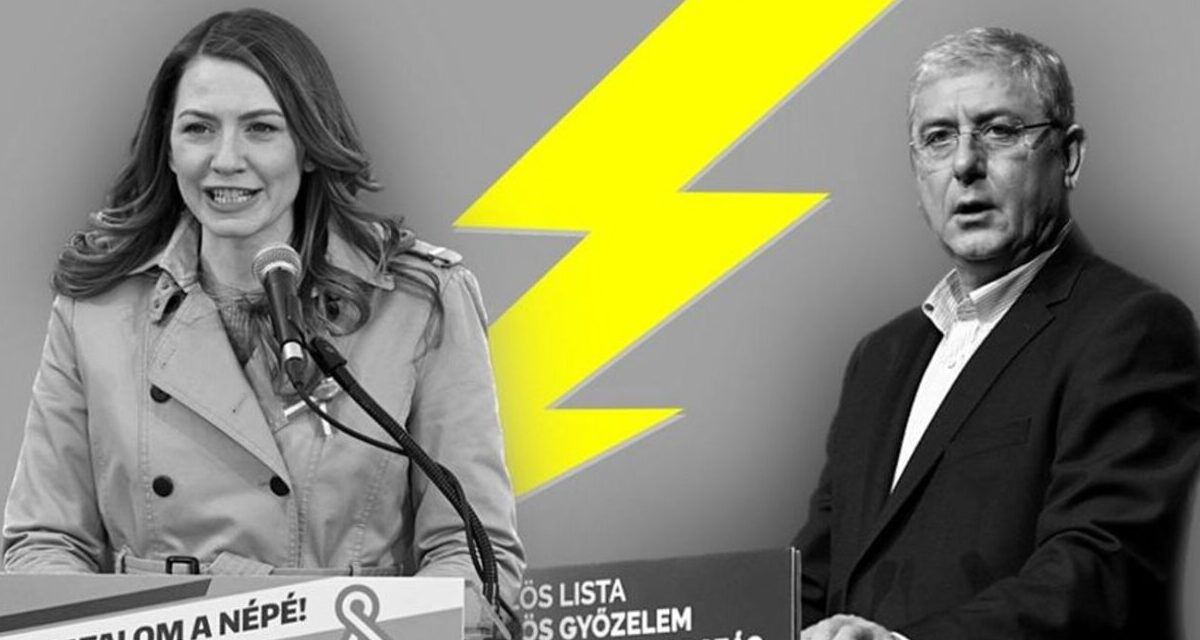Instead of a political program, there are now only extreme and destructive positions. Written by Ervin Nagy.
The first act of a pre-written play based on a bad script is over: Momentum and the Democratic Coalition have reached an agreement in Budapest. Although they put forward a separate list, they unconditionally support the reigning mayors of the competitor, and agreements have also been made in the districts managed by Fidesz. That is, they apparently preserve their autonomy, but they cooperate taking into account power engineering aspects, if you like, they have concluded a kind of "non-aggression pact". Political messages and criticism of each other remain, because this is the essence of the next act of the play, but they stand behind each other at the district level.
This is nothing more than the revival of the former MSZP-SZDSZ coalition, with the difference that instead of a political program, there are now only extreme and destructive positions.
This is an attempt to create a left-liberal political block that can be sympathetic to Gyurcsány voters and those who think that they do not want to vote for any of the pre-2010 parties, including the Democratic Coalition.
It's cunning, but on closer inspection it's transparent. It is logical, but does not provide a satisfying answer to the moral objections raised by Anna Donáth against Gyurcsány. (He called DK one of the carriers of the culture of lies and a dark shadow of the past.) It's a clever trick, but there's nothing new about it, because the MSZP and the SZDSZ tried to win over the voters with the same charade.
And have no illusions!
In whichever district or settlement they are in the majority (for now they are as far from the government as Makó is from Jerusalem), they will politicize together or form a coalition. What belongs together comes together... After all, their globalist interest policy rests on a common denominator. The same as in the case of the MSZP and the SZDSZ.
All of this is not primarily a challenge for the governing parties, but for the smaller actors of the historically fragmented opposition.
Above them, next to them, and leaving them out, they agreed on a package that covers almost the whole of Budapest, but according to the news that is leaking every day, specific agreements are being made in several big cities - behind the scenes, of course - between Anna Donáth and Ferenc Gyurcsány. We will see these soon.
It is worth mentioning that the Gyurcsánys last concluded a separate agreement with Jobbik in several parts of the country before the 2021 primaries. And we see what consequences this had for Jobbik.
According to this, the Anná Donáths are playing with fire when they have intercourse with the Gyurcsánys.
On the opposition side, the Democratic Coalition currently has the largest faction, and – among the parties of the former rainbow coalition – only Ferenc Gyurcsány was able to maintain his leading position, so his influence remains unquestionable. The shadow cabinet founded by Klára Dobrev has run out of steam by now, but it achieved its goal: it rearranged the balance of power on the left. Gyurcsányé's dominance is unquestionable today.
While Momentum is looking for its voice and its place on the political spectrum, and Ferenc Gyurcsány is working to strengthen his party's positions at the expense of other left-wing parties, the other small opposition actors are just fighting for survival. They will run separately in the EP elections, but in the municipal elections they will need some kind of cooperation, in which DK and Momentum will play the main role.
The Democratic Coalition cannot cover the entire left-liberal side, as the personality of Ferenc Gyurcsány scares many people off, but an unstable alliance between DK and Momentum, burdened with conflicts created on the model of the former MSZP-SZDSZ coalition, can be functional in the medium term. And the small parties will be able to join along the new axis created, as second-order actors, if they want to survive the summer's double election. The MSZP and Párbeszéd can go to DK to gloat, and Jobbik can try with Momentum. The LMP, on the other hand, seems to be getting out of the show, which may even bring success to the party. Perhaps a sovereignist opposition party is forming? We'll see, the localist green political intention is clear anyway, but it will be difficult to get out of the shadow of the DK-Momentum agreement.
The author aa XXI. Analyst at the Century Institute
Cover image: The DK–Momentum agreement is the revival of the MSZP–SZDSZ coalition
Source: Mandiner montage












